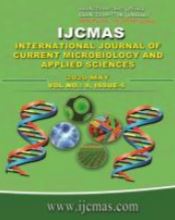


 National Academy of Agricultural Sciences (NAAS)
National Academy of Agricultural Sciences (NAAS)

|
PRINT ISSN : 2319-7692
Online ISSN : 2319-7706 Issues : 12 per year Publisher : Excellent Publishers Email : editorijcmas@gmail.com / submit@ijcmas.com Editor-in-chief: Dr.M.Prakash Index Copernicus ICV 2018: 95.39 NAAS RATING 2020: 5.38 |
Climate change is one of the most concerned subjects of discussion at present. The change may be slow but the fact that even a slight change of this could lead to great devastation, is not at all ignorable. The time to cease the alarming climate change has already been at its peak and now, the need of the hour is to cope with it. The agricultural sector has already seen phases of raising crop productivity but this had huge impacts on the environment. This time, there is a need of ‘sustainability’ to come into play. This is possible by increasing the base genetic variability and emphasizing on the Evolutionary Phase of plant breeding. This further requires the collaboration of classical or traditional breeding techniques with the modern biotechnological tools. Also, there had been a loss of germplasm i.e. the land races, with the adaptation of high yielding varieties. The idea of Participatory Plant Breeding (PPB) has helped in reconsidering the breeding lines that the farmers usually suggest and this has broken the chain of uniformity, thereby conserving the genetic variability within different areas as per the specificity and preferences of the farmers. Moreover, the employment of traditional knowledge in combination with the most advanced technologies shall help in attaining faster acclimatization to the newly developed lines. With the escalating population and growth in climatic irregularities, now expects plants with greater adaptability, productivity and sustainability. This article will help in reconsidering all the aspects of plant breeding that probably do not find much importance in today’s developed and technological era but holds good position in attainment of sustainability and adaptability to the changing climate.
 |
 |
 |
 |
 |